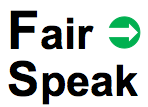Current Activities and Projects
- Honest plant-based foods. New research and development initiative in support of "really new" plant-based products rather than meat copies through innovative user-driven naming & framing. Participants: FairSpeak Group, Sensory Group at DTU, Danish Language Council, Naturli' Foods, Perfect Season, and Salling Group. Read more about the first steps here.
- Innovative tourism development. Researchers from the FairSpeak Group are responsible for the overarching monitoring and experience building in the Horizon2020 project INCULTUM which aims to develop sustainable tourism in 10 peripheral areas in Europe. Read more here. From April 2024, the work will be continued and expanded in the follow-up project SECreTour under Horizon Europe.
- Fair speak on food packaging. For several years, the FairSpeak Group has worked on the development of new empirical methods to assess the communicative fairness and potential misleadingness of food packaging and e-store design in ongoing dialogue with companies, authorities and NGOs. Read more about the latest results here. Read more about earlier projects here.
- Labelling of fair labelling. For some years now, the FairSpeak group has coordinated a win-win-based collaboration with Varefakta, which has resulted in a number of Master’s and Bachelor theses at CBS (read here). The focus is on the Varefakta label's rather unique status as a guarantor of well-documented and transparently formulated consumer information across agendas such as health, environment, climate impact etc. – and how this can be further developed at a time when the labelling jungle is becoming still more dense. Read more here.

